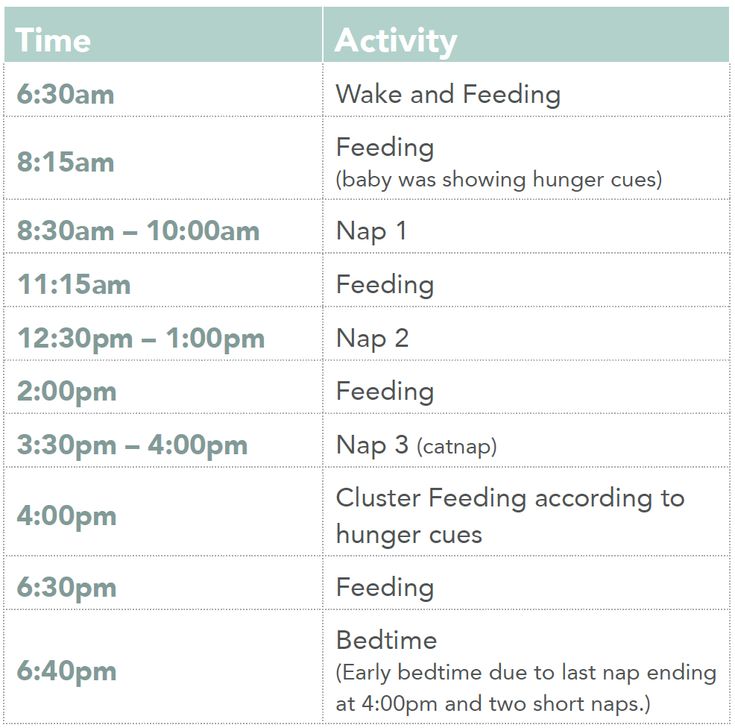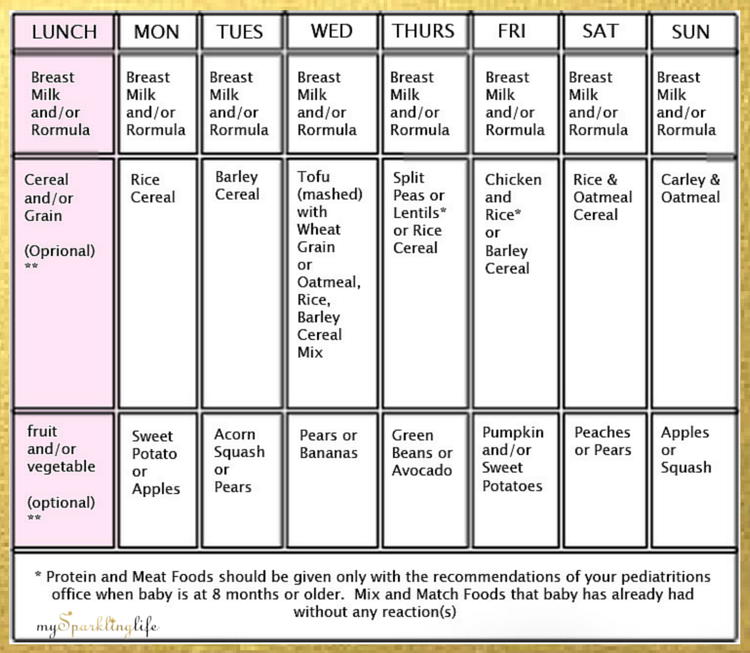Wean baby from night feedings
How and when to wean your baby off of night feedings
Wondering when to wean your baby off the bottle or breast at night? Most babies can make it through the night without eating when they're 6 months old. You may be able to start night weaning your baby when they're 4 months old, or you may choose to wait until later. The key is to ensure your baby is getting plenty to eat during the day and right before bedtime. You can then gradually cut back on the amount of breast milk or formula and the number of times you feed your baby at night.
Can you hardly wait for your baby to sleep through the night? Fortunately, that milestone may be closer than you think. Many babies are able to sleep for at least six hours at a stretch when they're 3 months old, or weigh 12 to 13 pounds. However, some babies take longer: Roughly one quarter aren't sleeping six hours overnight by the time they hit their first birthday.
Babies wake during the night for many reasons, but notably because they're hungry. In the early months, babies need to eat every few hours, including through the night. Gradually, however, babies need to eat less and less at night – until by 6 months of age (possibly sooner or later), your baby may quit nighttime feedings and go up to 12 hours without waking to eat.
Sometimes babies self-wean from night feedings with no help from you – they'll just sleep through the night suddenly and never look back. But sometimes you have to nudge them, especially if they're down to one nighttime feeding they just aren't dropping.
Night weaning your baby means ensuring they get enough to eat during the day so they don't need to wake at night to eat. Here's how to get started.
When will my baby be ready for night weaning?
This varies, but somewhere between the ages of 4 and 6 months, most babies get enough calories during the day to sustain them for five or six hours at night.
It's not unusual for younger babies to sleep for much longer stretches without needing to eat – or for older ones to continue waking up to eat. Even if your baby doesn't need to eat in the middle of the night, they may still wake up wanting to. Babies who are used to eating several times a night tend to wake up out of habit, and it can take time to change this routine.
Even if your baby doesn't need to eat in the middle of the night, they may still wake up wanting to. Babies who are used to eating several times a night tend to wake up out of habit, and it can take time to change this routine.
If you've recently gone back to work and are less available during the day, your baby may want to nurse or take a bottle at night as a way of reconnecting with you. And you may notice that your baby wakes up more often when they're teething, if they catch a cold, or when they're mastering a developmental milestone.
For all these reasons, it's helpful to approach the weaning process gradually and gently. Keep in mind that your baby is still young and has a tremendous need for comfort, closeness, and reassurance – particularly from you.
Should I start night weaning my baby?
Many experts recommend night weaning around the time babies are 6 months old, because at that point most babies don't physically need to eat at night. At this age, most babies wake to eat out of habit. And if you do wait to night wean your baby when they're older, know that it can be more challenging to wean a toddler off of night feedings. But the timeline isn't set in stone: You can start trying to get your baby to sleep longer stretches between feedings as early as 4 months of age, or much later than 6 months old.
At this age, most babies wake to eat out of habit. And if you do wait to night wean your baby when they're older, know that it can be more challenging to wean a toddler off of night feedings. But the timeline isn't set in stone: You can start trying to get your baby to sleep longer stretches between feedings as early as 4 months of age, or much later than 6 months old.
Ultimately, it's your choice whether to night wean or not. It's hard to maintain your own health and well-being if you're chronically sleep deprived. The decision to end your baby's night feedings depends in part on how they're affecting you.
If you enjoy nursing or giving a bottle to your baby at night, you can continue until your baby eventually quits on their own. On the other hand, if you find yourself feeling grumpy and exhausted, it may be time.
Keep in mind that your baby's sleep and nutritional needs may vary if they aren't gaining weight as expected or if they were born prematurely. If you're not sure whether your baby's ready for night weaning, talk to your child's doctor. The doctor can help you sort through any issues and help you make your decision based on how your baby's growing.
The doctor can help you sort through any issues and help you make your decision based on how your baby's growing.
How to wean your baby off of night feedings
Once your baby is ready to give up night feedings, try the following techniques:
- Make sure your baby gets plenty to eat throughout the day. As your baby grows and becomes more active, they may not want to stop to nurse or take a bottle during the day, and they may try to make up for it at night. To make sure they get enough to eat, take scheduled breaks during the day for a quiet bottle or nursing session in a place with no distractions. (If you're not sure that your child is eating enough, check their growth by having them weighed at the doctor's office.)
- Start the night weaning process slowly and gradually. Nurse your baby for a shorter period of time on each breast or give them a smaller amount of breast milk or formula in their bottle when they wake at night. Try to prolong the intervals between feedings by patting and comforting your baby back to sleep.

- Offer extra feedings in the evening. If your baby goes to bed with a full tummy, they're less likely to wake up hungry in the middle of the night.
- Give a "dream feed." After your baby's already asleep – say at 11 p.m. or so – you may want to wake your baby for a final feeding before you go to bed yourself.
- Avoid night weaning during times of transition. For example, wait if you're just about to return to work or take a family vacation. If you've recently become less available during the day, make sure to give your baby extra cuddle time when you're together, so they'll feel more connected and be less likely to seek comfort in the middle of the night.
- Gradually eliminate feedings, one at a time. Gently soothe and comfort your baby when they wake up, and explain that it's time to sleep, not eat.
- Keep any feedings you do at night short and sweet. That way your baby won't wake to eat just because they've come to expect late-night cuddles.

- Consider sleep training. If your baby seems to eat plenty during the day but still wakes at night, it may not be because they're hungry but because they're used to it. At this point, you may want to consider baby sleep training to help your little one learn to self-soothe back to sleep.
For more help night weaning your baby from a pediatric sleep physician, check out our course, Baby Sleep 101.
Night weaning if you're breastfeeding
Suddenly stopping the frequency of your nighttime nursing sessions can lead to painful engorgement and increased likelihood of developing an infection known as mastitis. That's one more reason it's good to start slow and drop one feeding at a time, so your breasts can get used to your new routine more easily. In the meantime, you may find that you initially need to wake up and pump breast milk during the night to relieve engorgement.
A key to night weaning your baby is making sure they're getting enough to eat during the day. You may find that you need to pump after one or more feedings during the day, then save the additional milk for an extra feeding in the evening. This can help boost your milk supply as well as ensure that your baby fills up before bedtime. As always, you'll know your baby is getting enough to eat if they're gaining weight as expected and having at least six wet diapers during the day.
You may find that you need to pump after one or more feedings during the day, then save the additional milk for an extra feeding in the evening. This can help boost your milk supply as well as ensure that your baby fills up before bedtime. As always, you'll know your baby is getting enough to eat if they're gaining weight as expected and having at least six wet diapers during the day.
Once your baby is around 6 months old, they'll start solids. Breast milk will still be your baby's main source of nutrition, although you may find that they need to breastfeed less as they gradually eat more solid foods.
Night weaning if you're formula feeding
If you're bottle-feeding and ready to night wean your baby, make sure they get enough to eat during the day. By 6 months of age, formula-fed babies need to eat between 6 to 8 ounces (or 180 to 240 mL) per bottle, four to five times every 24 hours.
Once your baby starts solids, formula will still be their main source of nutrition. But with time, solid foods will cover more of your baby's nutritional needs – and you'll eventually start giving your baby fewer bottles with slightly more formula in each. The bedtime bottle is usually the last to go, and even once you wean your child off it, you may want to give them a bedtime snack or a cup of milk to help them make it through the night without getting hungry.
But with time, solid foods will cover more of your baby's nutritional needs – and you'll eventually start giving your baby fewer bottles with slightly more formula in each. The bedtime bottle is usually the last to go, and even once you wean your child off it, you may want to give them a bedtime snack or a cup of milk to help them make it through the night without getting hungry.
Learn more:
- Baby sleep 101 virtual course
Night Weaning 101 (Help your baby or toddler sleep all night!)
Stopping night feedings can be an important milestone for your baby or toddler—and mean better shuteye for them and you. We’ve got all the info you need to consider when night weaning, plus strategies on how to do it successfully with minimal tears.
Night WeaningWhen your baby is a newborn, you’re used to them waking up several times a night to nurse or take a bottle. But, as they grow, their nutritional needs change and it’s okay to cut back and/or eliminate feeds throughout the night.
However, by this point, most babies are used to waking up several times a night and eating, so getting them to a place where they’ll go at least 7 to 8 hours without one can be a bit of a process. The good news? Alicia Birdsong, a certified pediatric sleep consultant and founder of Hush Little Birdie Pediatric Sleep Consulting is here to walk you through how to do it.
TIP: We’re going to share tips on night weaning both babies and toddlers since there’s no one right age to do this.
When to Wean“So first thing when it comes to night weaning, I think it’s important to talk about when it’s nutritionally appropriate to night wean,” says Birdsong. This is something you should talk to your pediatrician about, but typically babies between the ages of six and eight months are ready to go through the night without eating.
“It’s sometimes a little younger, or a little older,” adds Birdsong, “but this seems to be the average age to night wean. ” One of the biggest indicators you can look for is a child doubling his or her birth weight, which tends to correlate with not needing to eat at night. Other clues that it might be time to wean are if your baby is having trouble getting back to sleep after feeds, or is waking at other times of night when it’s not time to eat.
” One of the biggest indicators you can look for is a child doubling his or her birth weight, which tends to correlate with not needing to eat at night. Other clues that it might be time to wean are if your baby is having trouble getting back to sleep after feeds, or is waking at other times of night when it’s not time to eat.
Learn to
Promote Independent SleepThe thing with night weaning is that it’s often not just about eating, it’s about the fact that your baby is used to either nursing or having a bottle to fall asleep initially and get himself back to sleep throughout the night. If you’re not ready to teach your child to fall asleep on their own, explains Birdsong, you can switch eating with another sleep association like rocking to sleep.
However, “if you’re ready to help them fall asleep independently without any assistance from you, that is likely going to result in better quality sleep,” adds Birdsong. “If you help them learn how to fall asleep independently then it sets the stage for them to be able to connect their sleep cycles and stay asleep longer. ”
”
There are many methods for helping kids fall asleep on their own—you can checkout Birdsong’s Instagram for more advice-—but the part that is related to weaning is really making sure that your child is not dozing off while eating. This might mean moving nursing or the bottle feed to the beginning of the bedtime routine—with the lights on!—and then doing a book or a song or something after that before putting your child in the crib.
(If you nurse, you might even want to have your partner take over that second half of bedtime so that your child is not expecting you to feed him to sleep.)
How to
Cut Back on FeedingsIt’s important that you get the bedtime routine on track, because however your child is falling asleep at bedtime will also be how they’re expecting to get back to sleep during the night. But, beyond that, you obviously have to deal with the actual issue of feedings. Once you’ve established that your child is ready to night wean, you may choose to go cold turkey and remove the feeds altogether.
“If you would like to do something more gradual, though, you can still offer a night feed but slowly adjust how long the feed lasts,” says Birdsong. So, for example, if you typically nurse for 6 minutes, you can cut that down by a minute every few days until the feedings taper off. (Same works for bottle feeding, just cut down the amount of formula you offer.)
If you’re also working on your child’s independent sleep routine, once you remove that night feeding anytime they wake up, you should handle it with whatever method you’ve decided to use at the start of bedtime.
“The more consistent you are, the easier it’s going to be for them to learn a different way of doing things,” urges Birdsong.
A Note on Co-SleepingCo-sleeping can pose extra challenges when night weaning. “It may be really hard if you’re right there, and your baby is used to nursing and you’re telling him or her no…especially in the middle of the night when they’re tired,” explains Birdsong.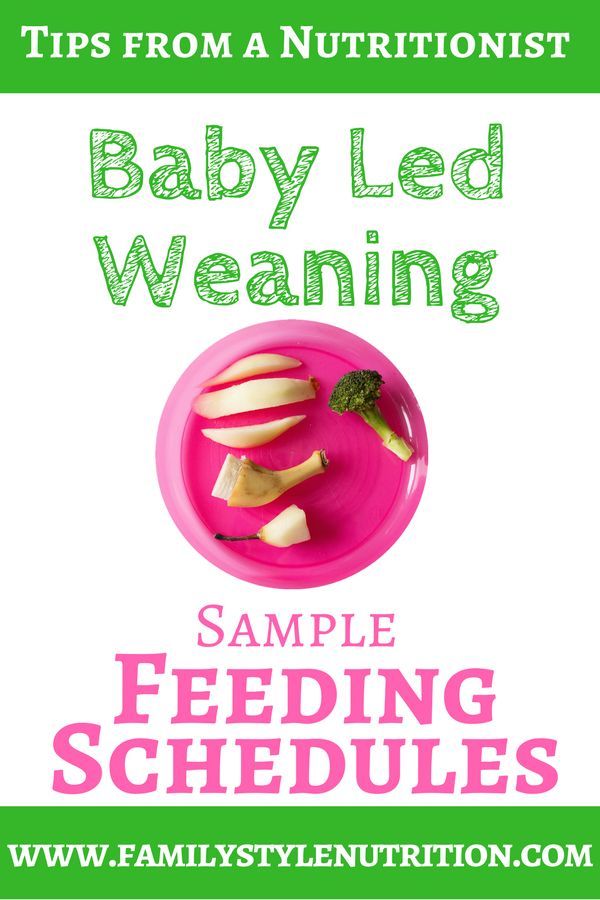 The solution? You might need to head to the guest room for a few evenings and let your child and your partner sleep together without you.
The solution? You might need to head to the guest room for a few evenings and let your child and your partner sleep together without you.
“If you’re not physically not present for, let’s say the first 4 to 5 nights, then the thought of nursing won’t be nearly as prevalent and your partner can offer other forms of comfort.” Depending on your child’s age, this could include snuggles, a stuffed animal, or even a pacifier.
How long does it take to night wean?
It depends. Once your child is ready to drop their night feeds, you can choose to go cold turkey and stop nursing or giving bottles during sleeping hours altogether. (If you’re nursing, though, you may need to wake up to pump for a few days while your body adjusts.) However, many parents choose to cut down the number of feeds and amount of milk or formula offered gradually, which can take a few weeks.
When can you stop night feedings?
Nutritionally speaking, most babies can do without night feedings between 6 and 8 months of age or once they’ve doubled their birth weight.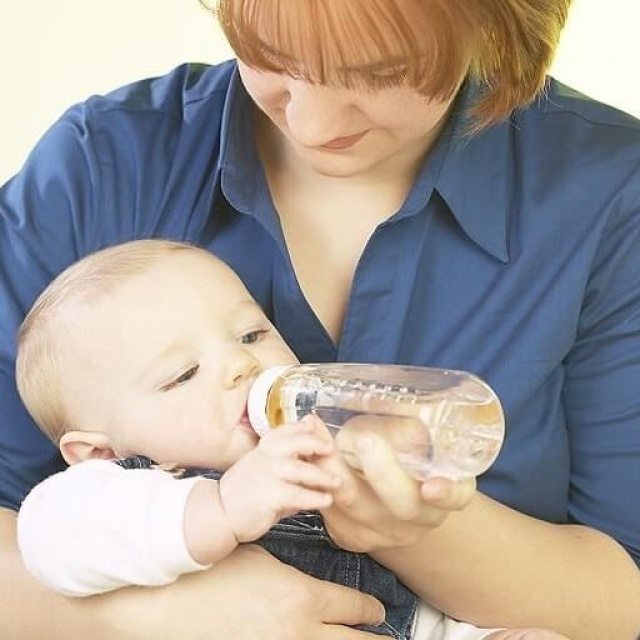 But it’s important to ask your pediatrician for the go-ahead before eliminating these nursing sessions or bottles.
But it’s important to ask your pediatrician for the go-ahead before eliminating these nursing sessions or bottles.
How do I stop nursing to sleep?
You’ll need to get your baby out of the habit of falling asleep while nursing, and this may mean adjusting your bedtime routine. One easy way to do this is to simply move nursing to the beginning of the routine. This may mean nursing first, with the lights on, and then getting them into their sleep sack and reading a book or singing a song after that, for example. Another trick: Have your partner take over the rest of bedtime after nursing, to help further separate the act of nursing from falling asleep.
How to Night Wean a Toddler
Once kids are over 12 months, it can be harder to wean them at night simply because they’ve been in the habit of waking for a longer period of time. It can be fairly frustrating to cut down on feeds slowly for this age, as Amy found when she night weaned her third kiddo at 14 months. The same advice as above applies, though the kids may have more feelings about it.
The same advice as above applies, though the kids may have more feelings about it.
“After three nights of trying to gradually reduce the duration of our feeds, I knew it was not working. My let down would barely be over and the timer was up and the baby was confused about why I was only giving him a little milk,” she explains. “I worked with Alicia to develop a plan to cut the night feedings cold turkey and after two nights, he was sleeping through the night.” Yes, that may mean crying temporarily, but Amy found that the clear rules were much easier for everyone to understand.
The goal of night weaning—once the child is nutritionally able to go through the night without breastmilk or formula—is to break the habit of waking up during the night. That can take 2 nights or a week, and it may have the benefit of making the kids be hungrier for milk or food during the day. It’s a process, so be gentle with yourself through the transition.
Best Tips for Night Weaning
- Wait to night wean until the child is nutritionally ready for the milestone.
 This typically happens when babies are between the ages of six and eight months.
This typically happens when babies are between the ages of six and eight months. - Work on disassociating sleep and eating by giving the last feeding of the day with the lights on and adding a book or a song after the feeding. The goal is to put baby down awake so when they wake up during the night, they will be able to go back to sleep without a feeding.
- Go gradual by shortening the duration of feeds by a minute (or decrease ounces of formula) each night until you get down to zero, and offer alternative comfort during wake ups like snuggles or a pacifier.
- Go cold turkey by deciding on a day when night feedings will end and say goodnight to the little and leave them be until morning.
- Remember that you may need to pump a small amount for a few nights to help your body adjust (but don’t pump too much or you will tell your body that it needs to be producing milk at that time—aim for just enough to give you relief).
- A toddler who feeds during the night may have a decreased hunger for daytime milk and solids, so cutting out the night feeds can help move that intake to the daytime.
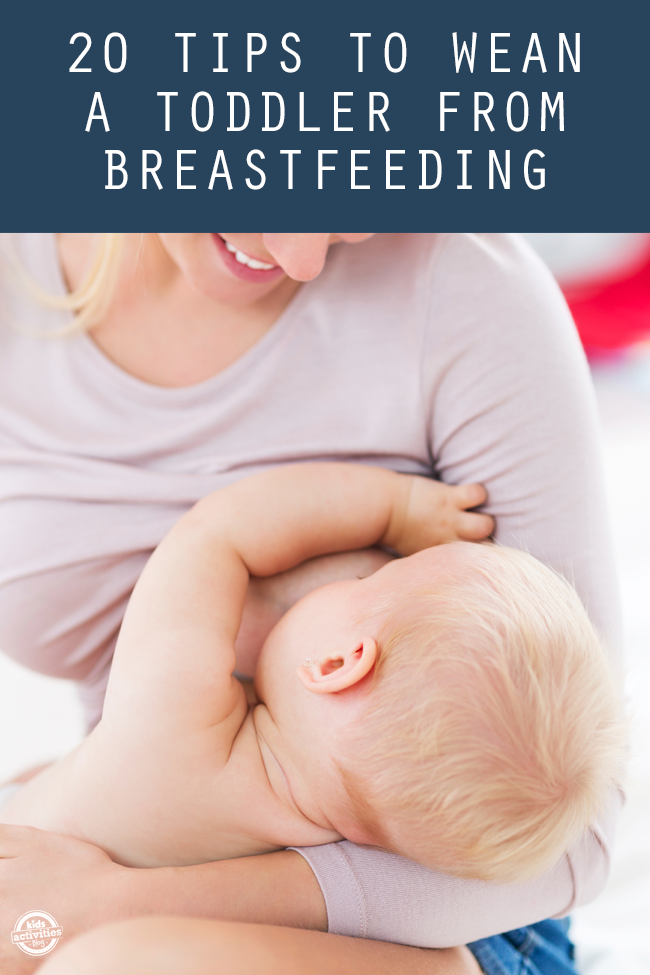
- If you co-sleep and have been in the habit of nursing to sleep and back to sleep, it may help to sleep in another room for a few nights as you transition.
- Whatever approach you take, be consistent.
- Discuss any concerns you have with your pediatrician.
Find our full guide to Weaning Toddlers here. And reach out to Alicia for additional personalized support. You can take $20 off a package with the code yummytoddlerfood.
How to wean a child from night breastfeeding after a year
PreviousNext
- When to Wean Your Baby From Night Feeds
- Ways to wean your baby from night feedings
Contents:
Sooner or later, every mother begins to worry about the question of how to wean her child from night feeding. Some no longer had the strength to get up several times a night to prepare the mixture. Others are not satisfied with the little "third wheel" who settled in the matrimonial bed. And someone strives to comply with all the prescriptions of his doctor.
And someone strives to comply with all the prescriptions of his doctor.
When to wean a child from night feedings
Once complementary foods are introduced, i.e. at 4-6 months of age, most children are well fed during the day and no longer require nighttime feedings for their development.
So, in principle, you can try to wean a child from night feedings already from 6 months. Many children by this age are not at all hungry at night, they just have formed a stable habit of waking up at night. Mom should be aware that the weaning process may take some time and in any case will be associated with some additional inconvenience that causes lack of sleep. Therefore, you first need to analyze your own readiness to wean the child from night feedings. After a year, it will be much easier to do this.
But in addition to satisfying the purely physiological need for food, the child, with the help of feeding, makes up for the lack of communication with the mother. This becomes especially noticeable when the baby is sick, or he is teething, or during the day he does not see his mother. In such cases, the child requires attention at night, asks for a breast or a bottle. Therefore, in the process of weaning from night feedings during the day, it is worth giving him maximum useful time to ensure psychological comfort, and the baby did not need to be convinced of his mother's love in the dark. If the baby asks for attention at night due to the discomfort caused by teething, in this article we tell you how to reduce unpleasant symptoms.
This becomes especially noticeable when the baby is sick, or he is teething, or during the day he does not see his mother. In such cases, the child requires attention at night, asks for a breast or a bottle. Therefore, in the process of weaning from night feedings during the day, it is worth giving him maximum useful time to ensure psychological comfort, and the baby did not need to be convinced of his mother's love in the dark. If the baby asks for attention at night due to the discomfort caused by teething, in this article we tell you how to reduce unpleasant symptoms.
Ways to wean your baby from night feedings
-
Gradually change feeds to water. First, offer the child to just drink water in one nightly feeding. If water does not work right away, then you can dilute the milk or mixture in a ratio of 1 to 3, increasing the amount of water in the mixture every night. Soon the child will not be interested in waking up to drink some water, and perhaps in such a simple way it will be possible to reduce the number of nightly feedings.

-
Reduce nighttime feeding while breastfeeding. It is necessary to teach the baby to the fact that the night is a time for sleep, and not for food, and you should not use the breast as a dummy.
-
Increase the intervals between feedings by various ways of putting the baby to sleep during nocturnal awakenings (songs, motion sickness, fairy tales, strokes).
-
Feed formula or porridge at night
-
Increase the number of breastfeedings during the day. When breastfeeding, usually night feeding remains the last feeding before the final weaning, but in the case when the mother wants to keep breastfeeding, but reduce the number of night feedings, it is worth satisfying the baby's need for the breast as much as possible during the day.
-
Change the way the child is put to bed. Cardinally euthanize the child without feeding or, after breastfeeding a little, transfer to the crib. You can put the baby to sleep while walking in a stroller or give it to dad for motion sickness.
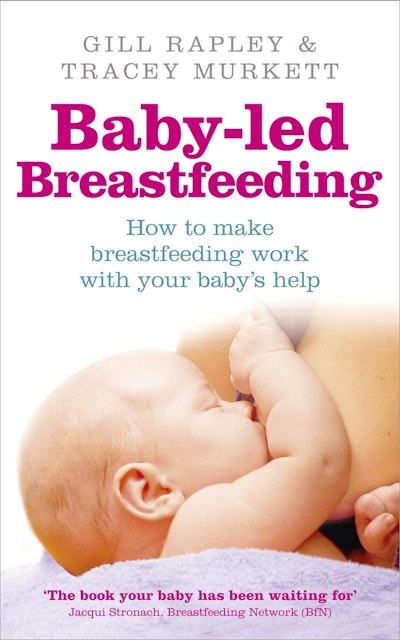
-
Restrict access to the chest at night. When sleeping together, waking up and not immediately finding a nipple, the child simply nuzzles his mother in the side and falls asleep, because he is not really hungry, but simply satisfies his need for closeness to his mother. Frequent contact with the chest can be replaced with regular tactile contact, which we talk about in this article.
-
Sleep separately - in different beds or in different rooms. In cases when the baby wakes up, you can lie down next to him to soothe or feed, but then still go to your bed.
-
Explain. Children older than a year can already be explained that no one eats at night, everyone sleeps, and food will be when it becomes light. This must be constantly repeated both at night, when waking up, and during the day, during games. Moreover, it is important not to deviate from your own words, and if the child still requires food, in every possible way to distract from this, tell tales, rock him in his arms, do a light massage.
 You can offer water.
You can offer water.
If you see that the child began to behave very capriciously, aggressively, his daytime sleep was disturbed, he does not let you go a single step during the day, or, on the contrary, pushes you away, perhaps he has not yet matured in order to completely refuse from night feedings.
It is the baby's daytime behavior that will tell you if you are moving in the right direction. You should not ignore the reactions of the child, sometimes it is better to slow down or completely abandon the idea for a while so as not to injure the baby, depriving him of a sense of trust in the world. After all, the period when the baby is in dire need of you is, in fact, so short that later you will remember your nightly feedings with nostalgia, waiting for your grown-up child from the disco.
Read us on Yandex Zen
PreviousNext
How to wean a child from night feeding
November 13, 2021LikbezLife
There are cases when this is not worth doing.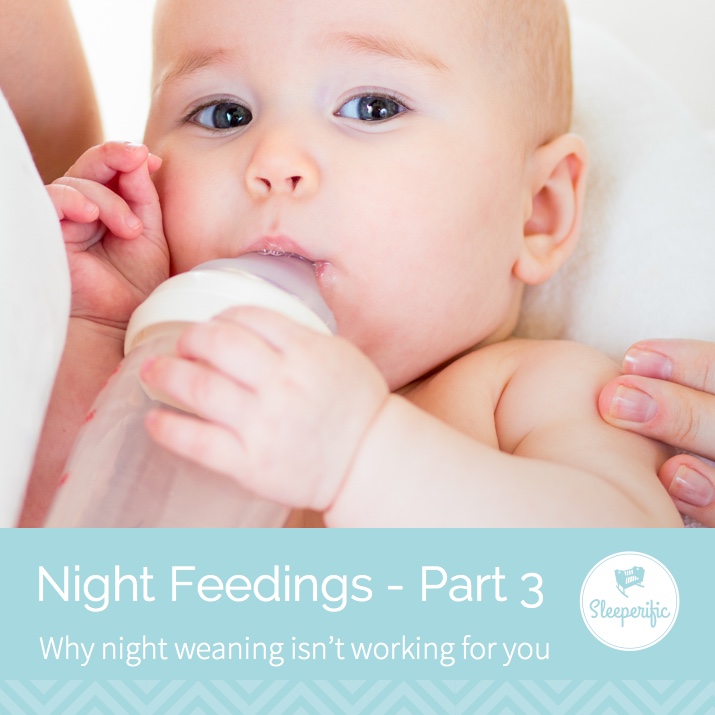
Share it
0Is it necessary to wean from night feeding at all
Doctors have no unanimous opinion on this matter. For example, American pediatrician Richard Ferber, founder of the Center for Children's Sleep Disorders at the Children's Hospital in Boston and author of the bestselling book Child's Sleep. The solution to all problems, ”warns: if the baby no longer needs nightly food, the habit of feeding him at night can cause sleep disturbances.
The connection is simple: when a child eats, the digestive tract begins to work actively. This means that after eating and falling asleep, the baby will quickly wake up due to an overflowing diaper or discomfort in the stomach. To calm down, the baby will eat again, and the situation will repeat itself. If you do not break this vicious circle and do not stop night feedings, the opportunity to sleep for both parents and the baby will not be presented for a long time.
On the other hand, renowned pediatrician William Sears, author of Your Baby From Birth to Two Years, How to Put Your Baby to Sleep, and others, urges parents not to rush to give up nighttime feedings.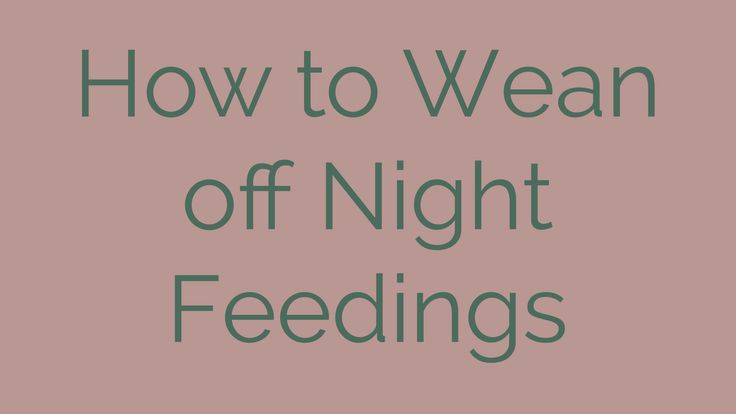 Unless, of course, it exhausts the whole family. According to Sears, night feeding helps the baby feel safe and strengthens the bond between him and his parents.
Unless, of course, it exhausts the whole family. According to Sears, night feeding helps the baby feel safe and strengthens the bond between him and his parents.
When you should not stop feeding at night
Experts from the American medical resources HealthLine and BabyCenter list situations when you definitely should not stop feeding at night, so as not to cause unnecessary stress to the baby.
- The child is sick or teething.
- Baby is not gaining weight well.
- The baby is experiencing a growth or developmental spurt. For example, learns to roll over, sit, or rapidly stretches.
- The mother recently went to work and the baby sees less of her during the day. In this case, he may ask for a breast or a bottle more often than usual in order to feel connected to his mother again.
At what age can you start weaning from night feeding
Preferably no earlier than six months. Until this age, babies are fed almost exclusively on breast milk or formula.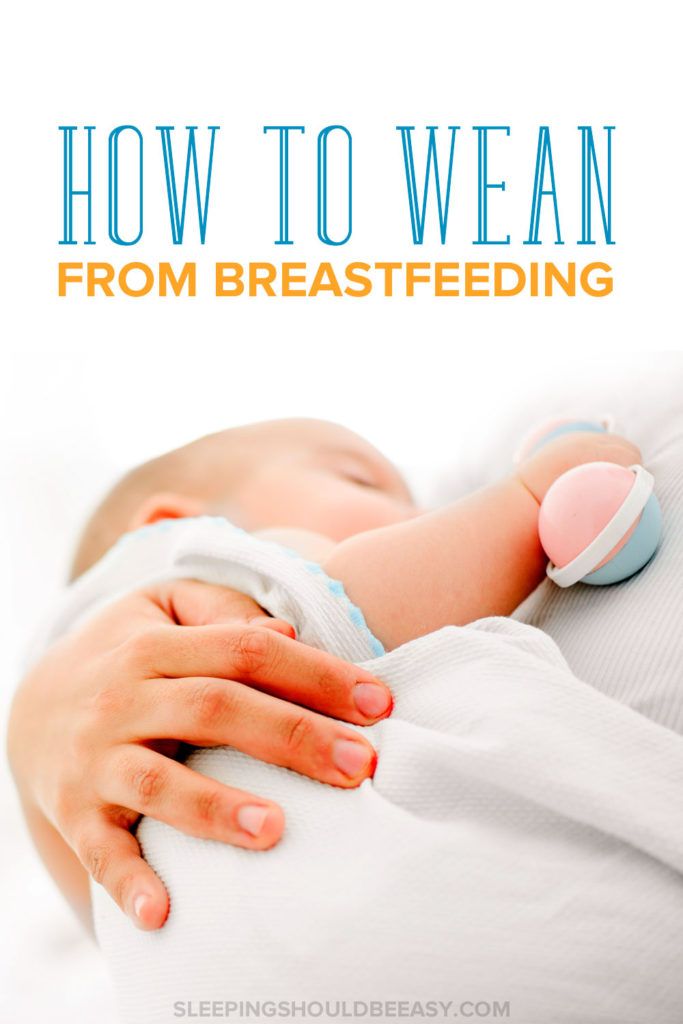 Although these are high-calorie foods, the stomach is still too small to stock up on them, and the feeling of hunger quickly returns.
Although these are high-calorie foods, the stomach is still too small to stock up on them, and the feeling of hunger quickly returns.
According to experts, breastfed babies need to eat 8 to 12 times a day. On artificial - from 6 to 10 times. Thus, the average child under the age of six months will feel hungry every 2-4 hours. Including at night. So night feeding is inevitable.
By about six months, the situation changes: the stomach enlarges, and solid food appears in the diet. Cereals and vegetable purees take longer to digest, and satiety periods become longer.
Therefore, by the age of six months, two out of three babies are able to sleep through the night and not wake up from hunger. For some children, this happens a little earlier, starting at three months or when they reach a weight of about 5.5 kg. For others, interrupted nighttime sleep lasts up to a year, and sometimes longer. But six months is a good benchmark for parents to finally think about the opportunity to get enough sleep.
How to Wean Your Baby From Night Feeding
Here's a strategy to make it as comfortable as possible.
1. Be patient and be prepared to take it step by step
Slowly reduce the duration of your nightly feedings, each time taking the breast a little earlier. Or, if you are formula feeding, reduce the amount of formula in the bottle. And to make the baby fall asleep easier, stroke him, sing a lullaby or shake him.
2. Make sure your child gets enough food throughout the day
Growing babies are active and curious. Sometimes, having played too much, they may refuse to eat. If this happens several times a day, at night the baby will try to replenish the calorie stores, again and again demanding a breast or a bottle.
Therefore, make sure that the baby eats during the day. At least once every 3-4 hours, take breaks from games or walks, turn off cartoons or music, put away toys and invite your child to rest in your arms, relax and have a thoughtful snack.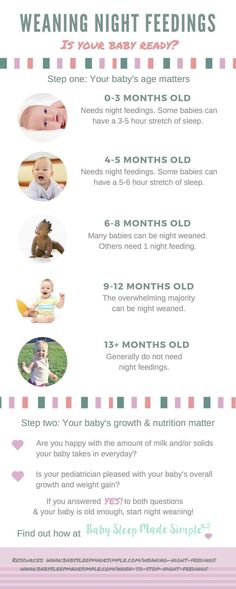
If you are following this recommendation, but you are not sure that your child is getting enough food, keep track of his height and weight: they should be within the limits of age. Your pediatrician will tell you about them. Height and weight above or below the norm indicate that you need to adjust the number of calories.
3. Plan your bedtime
Without food, an infant older than six months can sleep for up to 8 consecutive hours on average. This means that if he falls asleep at 20:00, he will inevitably get hungry by a maximum of four in the morning. Plan your daily routine in such a way that the child goes to bed (and, accordingly, wakes up) at a convenient time for you.
4. Delegate nighttime feeding or motion sickness to dad or another family member
It happens that a baby asks for a breast or a bottle just to smell the mother. Try to break the link "I eat - it means my mother is near."
The easiest way to do this is with the help of dad or another close relative: let someone else, and not mom, take care of the baby at night for a while - offer a bottle, shake it, stroke it.


